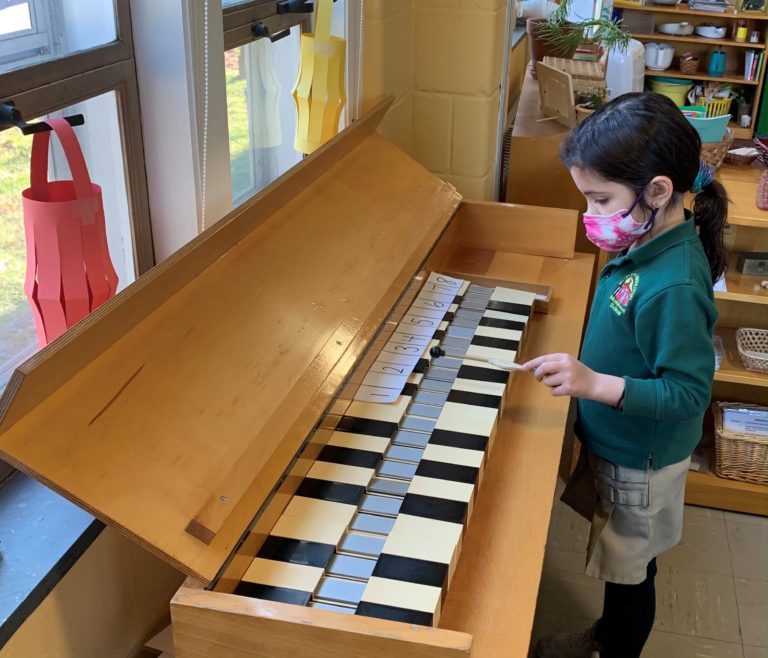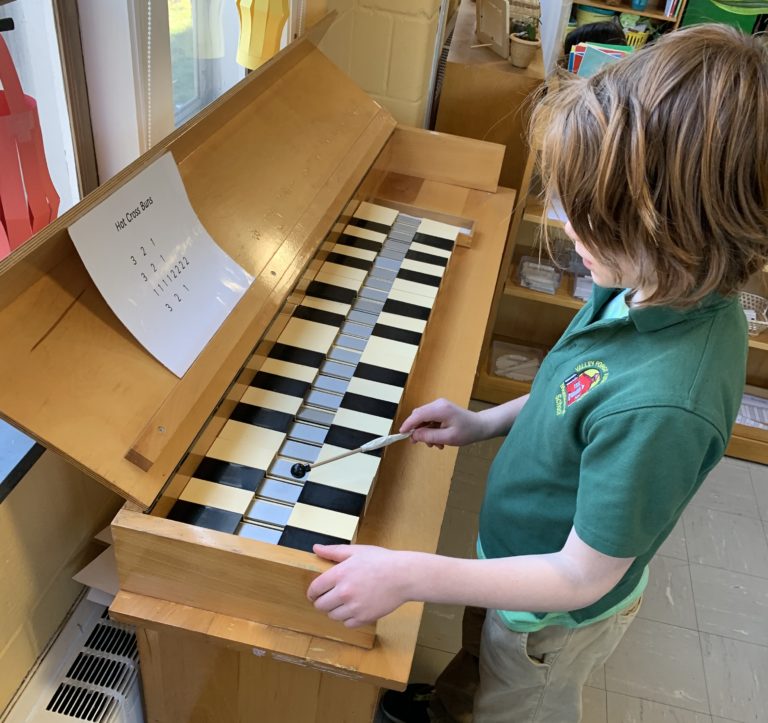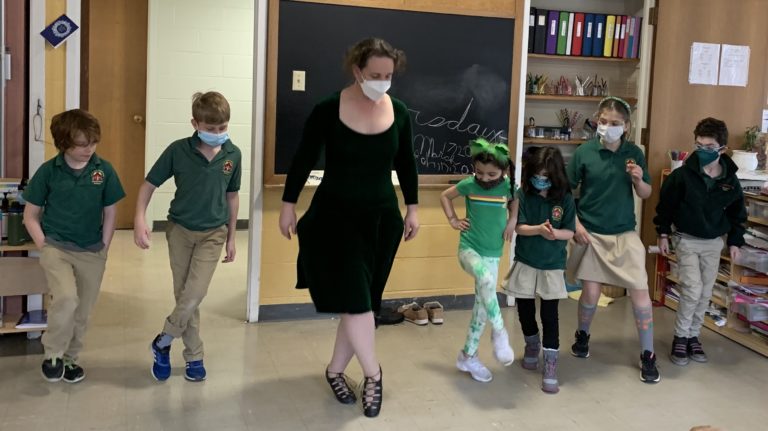
Maria Montessori’s program of Cosmic Education for Elementary students is to “give the child the universe” and that, of course, includes music. The music that we do in the elementary classroom reflects the way we do everything.
Music is presented sensorially, in a way that appeals to the senses, and concretely, with manipulable objects, initially. Later, when children are comfortable with the sensorial and concrete presentations and able to repeat and expand upon them independently, we introduce the symbols associated with music. The concrete and the symbolic are combined and children are offered further learning experiences to build on that solid foundation.
Music is not a special subject taught by an expert from outside of the classroom, but it is taught by the classroom teacher, so as to discourage misconceptions about music.
- Music is separate from or not related to other fields of endeavor.
- Only certain people are capable of music.
- Even my teacher, who seems to be able to do everything, can’t do music.
- Music is hard.
Why do young children think of themselves as musicians and the same people years later do not think of themselves as musicians? That is the danger of having music removed from the everyday life of the classroom.
Music Development
We regard music “development” to be similar to language development. There is a babbling stage, a spoken stage, and a written stage. Music is freely available just as the children are free to talk, read, and write. We listen to music every day. We sing every day. We incorporate movement and body percussion in our music, formally and informally. We use the Tone Bars to introduce music theory. Music is part of the daily life of the classroom.

Some of the genres that we have explored this year are classical, jazz, marching band, big band, blues, bluegrass, balalaika, light opera, show tunes, sitar, pop/rock, Celtic, sacred, easy listening, ragtime, Motown, country, and folk.

We focused on music from African and African American cultures during Black History Month and on women composers and performers during Women’s History Month. Ask your child to tell you his or her favorites!